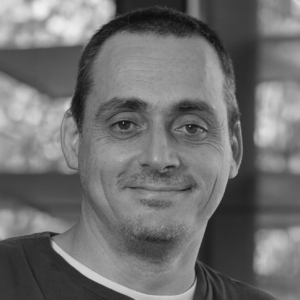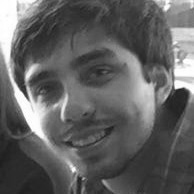Visitors Talk: Oscar Camara Rey, Pompeu Fabra University
Hosted by Jaume Banus, CHUV, we are pleased to invite you to attend the CIBM Visitors Talk on November 14th at 15:00 CET by Oscar Camara Rey from the Pompeu Fabra University, Barcelona who will be sharing on “Is stroke being treated as a heart-brain axis disease?”.

Oscar Camara Rey
Pompeu Fabra University, Barcelona
Abstract
Despite the fact that up to one-third of strokes are cardioembolic, clinical practice and research often remain siloed between cardiology and neurology. This talk will challenge this divide, drawing from a research profile that merges computational modeling and data science across both domains. I will present our work on atrial fibrillation, where we use biophysical simulations and digital twins to understand thrombus formation in the left atrial appendage and plan device interventions. We are now expanding this framework in the EU’s GEMINI project to build a full heart-brain computational axis, linking cardiac models of embolism with neurovascular models of thrombectomy. Ultimately, this talk will explore the technical and clinical barriers we face in moving from siloed specialties to a truly integrated, heart-brain approach for stroke management.
About the speaker
Oscar Camara obtained his Degree in Telecommunications Engineering at Universitat Politècnica de Catalunya, in Barcelona, in 1999. He completed his Master and PhD in Image Processing in the École Nationale Supérieure des Télécommunications in Paris, in 2000 and 2003, respectively. From 2004 to 2007, he was a postdoctoral researcher, first at King’s College London and then at University College London. In July 2007, he joined the Universitat Pompeu Fabra (UPF) as Ramón y Cajal postdoctoral researcher. In October 2011, he founded a new research group at UPF, Physense, currently composed of 26 members. From 2012 he was associate professor at UPF, becoming full professor in 2020. He was a visiting scholar at the University of Auckland (New Zealand) during the 2018-19 academic year. He is one of the co-founder groups of the research unit BCN-MedTech, recognized as a consolidated group by the Generalitat de Catalunya. His research work has led to 100 publications in journals (70% in Q1), 5 book chapters, the co-edition of 12 LNCS proceedings volumes, 3 patents and around 250 contributions to national and international conferences in both methodological and clinical fields (Google Scholar, Oct’25: number of citations = 9760; h-factor = 44). During his career, he has officially co-supervised 15 PhDs, and currently co-supervises 15 PhD (6 finishing in 2025). At a national level, he has recently obtained the fourth consecutive national project as PI from the Spanish administration, after successful previous ones. The research performed in these projects have led to several innovation activities, leading to the foundation of the VirTest Technologies spin-off, and several regional entrepreneurship programmes. He has also obtained significant funding from technology transfer projects on microwave technologies, including a Marie Curie Individual Fellowship. This research line led to the creation of the spin-off Miwendo Solutions. At the European level, he is co-PI of two H2020 EU projects, SimCardioTest (2021-2025) and GEMINI (2023-2026). He also participates in the ERA-NET Neuron network for fetal abnormality assessment (2022-2024). Previously, he was co-PI of a European project under the FP7 program (VP2HF, 2013-2017), leading the Clinical Workflow work-package, the same role he had in the previous EU project (euHeart, 2009-2012). We were also awarded a European Industrial Doctorate grant (ITN) with Philips Medysis, France (CardioFunXion; 2015-2019). He has been actively contributing to the development of Open-Source tools in computational imaging and modeling such as the Rocket platform (e.g., a project with the Bill & Melinda Gates foundation, 2018), medInria, GIMIAS and OpenCMISS. He was the coordinator of the Biomedical Engineering (BME) degree at UPF from its start in 2011 to 2017 and creator of the Computational BME MsC in 2016. On average per year, he coordinates more than 10 BsC/MsC theses (> 120 thesis supervised so far), is responsible for 4 different BME subjects (accumulating around 1500 teaching hours in his career). Since December 2021, he is director of the Engineering School at Universitat Pompeu Fabra.
Date and time
Friday, November 14th at 15h00 CET
Location
CIBM CHUV-UNIL, Radiology Department, Rue Pépinet 3, Lausanne
Seminar Chair

Jaume Banus
CHUV
JOIN US!
If attending on-site, the event is for free but registration is mandatory. REGISTER HERE.
To join us on Zoom:
https://epfl.zoom.us/meeting/register/WWYZjmptRx2-_jrBlR-T_w
(Meeting ID: 642 0556 6226)
We look forward to seeing you there!
Date
- 14 Nov 2025
Time
- 3:00 pm
Location
- CIBM CHUV-UNIL, Radiology Department, Rue Pépinet 3, Lausanne
